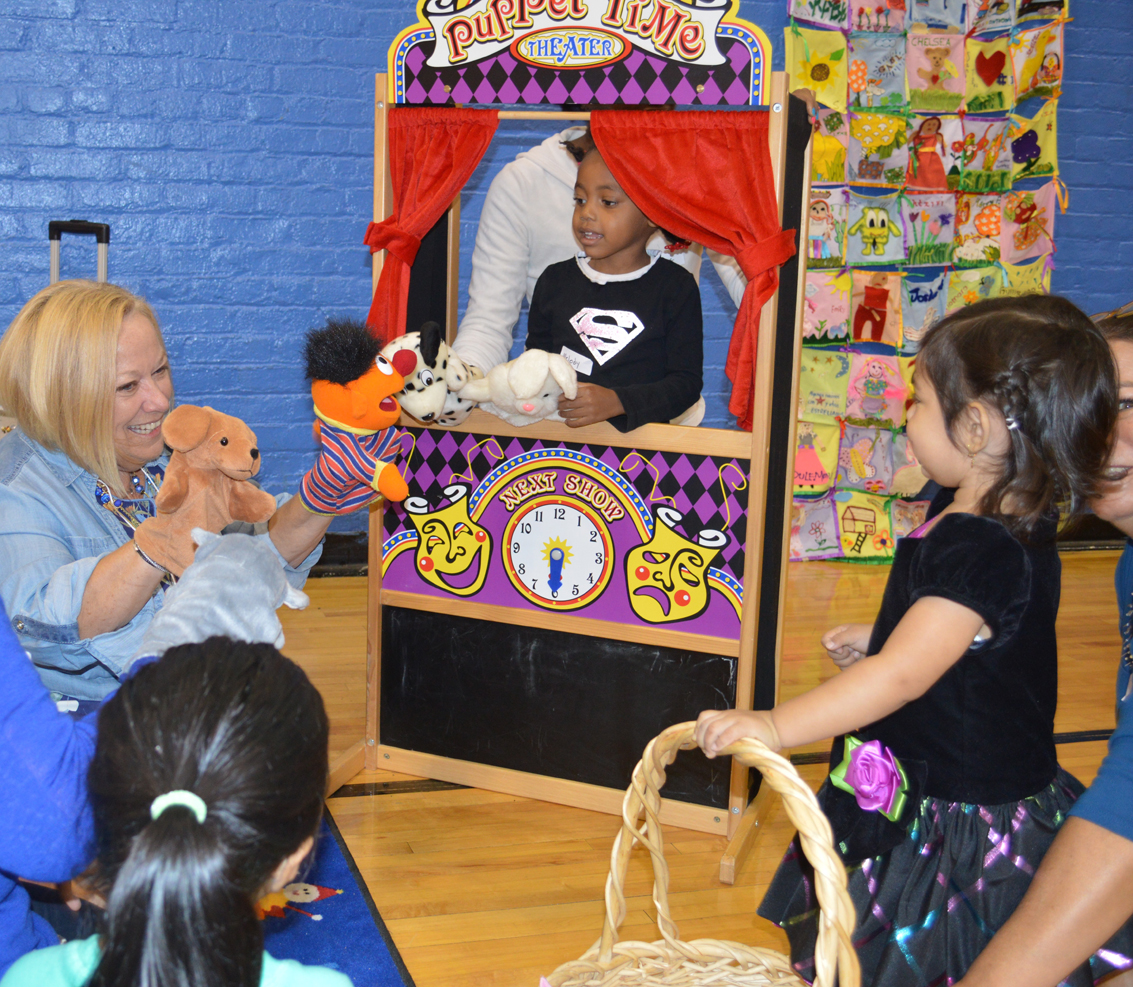A 45-year fight: WJCS continues to battle achievement gap

According to a legion of research from a number of institutions, children from low-income households perform worse on most measures of academic achievement, from grades and test scores to college enrollment rates, when compared to their high-income peers.
While the reasons behind this broad gap are varied, many researchers believe part of the problem lies in the fact that children in lower-income households are less likely to have access to learning-rich environments in their own homes. For one Westchester nonprofit, creating those environments has been its mission for nearly half a century.
Westchester Jewish Community Services, a nonprofit human services agency headquartered in White Plains, marked the 45th anniversary of its Parent Child Home Program (PCHP) this year. The program uses an evidence-based model to provide families with tools to achieve their greatest potential both in school and in life.
“The program bridges the academic achievement gap between children from low-income families and their wealthier peers,” said program director Patrice Cuddy. “Children participating in the PCHP enter school ready to learn and achieve at the same level as their more economically advantaged peers.”
Cuddy said the program, which is part of a national network of PCHPs and the only such initiative in Westchester County, aims to prepare children for school by beginning their education in the home.
“Some research states that 30 to 50 percent of children enter kindergarten without the school readiness skills needed to succeed,” she said. Those children “often engage in a futile attempt to catch up to their more privileged peers, many of whom have had multiple years of preschool.”
As part of the program, families receive twice-weekly home visits from a program employee. The trained home visitor provides the family with a book or educational toy, often the first such item in the home. The home visitor then uses that item to initiate conversation and play activities with both parents and children, helping develop language and literacy skills and build school readiness, Cuddy said.
PCHP employees visit the homes of families for a two-year period, beginning when the child is 2.
“The home visitor supports parents to become their child”™s first and most important teacher,” Cuddy said. “The regular presence of a well-trained, well-supervised home visitor provides a consistent support system for the family.”
According to the organization, students who complete the PCHP are 50 percent more likely to measure ready for kindergarten than their socioeconomic peers. They are also 50 percent less likely to be referred to special education services by third grade and have a 30 percent higher graduation rate than their peers.
Cuddy said the program disrupts the cycle of poverty and disadvantage by supporting academic, personal and social achievement. The program also links families to community resources including food, shelter, medical and educational assistance.
Since its inception, the PCHP has assisted more than 4,000 parents in Westchester County. Cuddy credits the program”™s long-standing success to its focus on an evidence-based model and its adherence to high standards.
“Home visitors focus on building relationships and supporting families in realizing their role” as their children”™s educator, she said, adding that sessions are designed to be “fun and joyful” for all involved.
The program, which has 35 part-time, paid home visitors and several full-time staff, is free to families with preschool-aged children. State and county funding, along with donations from foundations and private philanthropists, support the organization”™s initiatives and $750,000 annual budget.
“Funding runs in cycles and the program is always in jeopardy of losing critical support,” she said.
Because of the PCHP”™s long waiting list, Westchester Jewish Community Services opened a Parent Child Care Center at 79 7th St. in New Rochelle in 2002. The drop-in playgroup allows parents and children to participate in activities together. “It also provides community resources to families who are often isolated,” Cuddy said.
The PCHP also includes a Summer Fun Program at Hartley Park in Mount Vernon and the Child Care Home Program, which assists family care providers who serve under-resourced families.